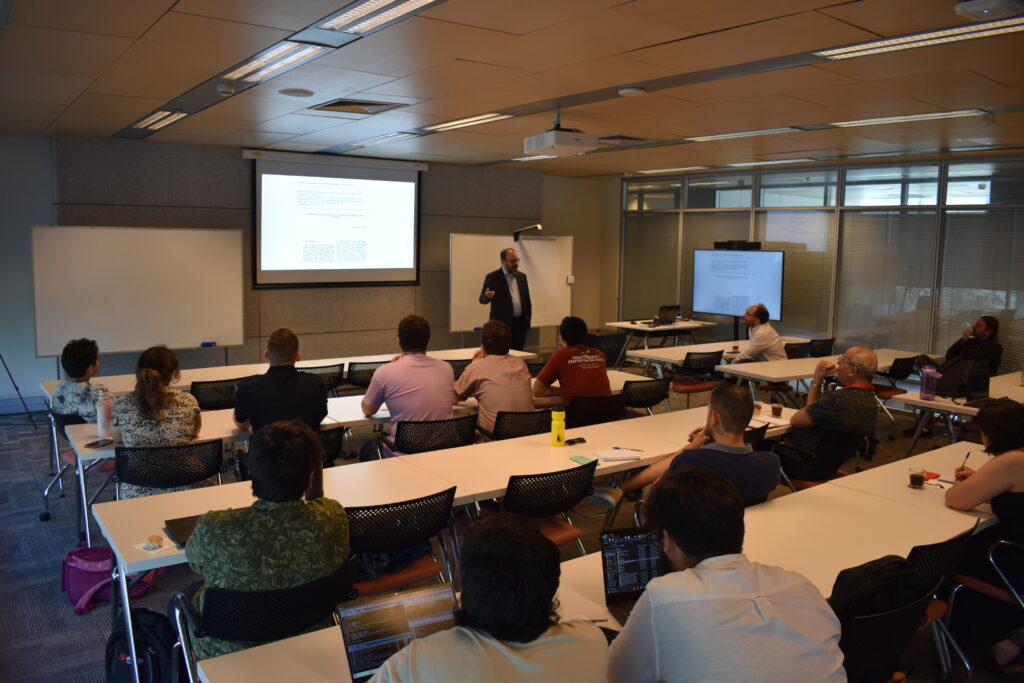26 Jan Investigadores del Núcleo Milenio LM2C2 participaron en un workshop sobre inmigración y mercados laborales

-
- Los expositores fueron:
- Raimundo Undurraga: Investigador del Instituto Milenio MIPP, director del Núcleo Milenio Migra y académico de Ingeniería Industrial de la Universidad de Chile.
- Benjamín Villena: Académico de la Universidad Andrés Bello e Investigador del Instituto Milenio MIPP y del Núcleo Milenio LM2C2.
- Mauricio Tejada: Investigador del Núcleo Milenio LM2C2 y académico de la Universidad Diego Portales.
Inmigración y Mercado Laboral
La calidad de la correspondencia entre empresas y trabajadores en el mercado laboral es crucial para su desempeño: una buena combinación entre las habilidades y tareas de los trabajadores aumenta la satisfacción personal en sus empleos, la estabilidad laboral, los salarios y, por lo tanto, la productividad.
La evidencia señala que existen amplios desajustes en Chile y en el mundo entre las características requeridas en el puesto de trabajo y aquellas que posee el trabajador. La inmigración puede cumplir un rol importante en mejorar la productividad de los mercados laborales, y con ello el desarrollo económico del país.
No obstante, para ello se requieren instituciones locales (e.g., mercados laborales y de vivienda, entre otros) que garanticen una adecuada inserción de la población migrante a los mercados. Un aspecto crucial es el matching entre las habilidades que ofrecen las y los trabajadores migrantes, con lo que demandan las empresas y los consumidores.
